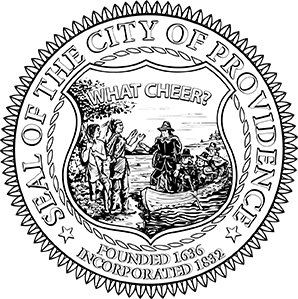Exhibits
Opened in 1896, the museum is Rhode Island’s only natural history museum and is home to the state’s only public planetarium. For more than a century, the museum has served as a unique educational, scientific and cultural resource by offering exciting exhibits, workshops and programming that provide ways for children and families to learn about our world and its people.
The museum houses collections containing over a quarter million objects pertaining to natural and cultural history assembled primarily by local collectors from sites around the world. The natural history collections include fossils, mollusks, minerals, rocks, mounted flora and fauna. The cultural collections contain over 24,000 archaeological and ethnographic specimens primarily of American Indian, Pacific Islands and African origins.
Circle of the Sea: Re-Visited and Re-Imagined
Take a South Seas adventure without ever leaving the state. See an array of natural history from the region and objects used in daily life for cooking, clothing, fishing and seafaring.
Exhibit was made possible through major funding support from the Rhode Island Council for the Humanities, an independent state affiliate of the National Endowment for the Humanities. Special thanks to Kirsten Vacca, Guest Curator, for her contributions and expertise.
Flight of the Dinosaurs: Origin of Birds
Temporary exhibit opened April 7, 2023
When we hear the word “dinosaur,” we might immediately picture one or two specific animals. However, dinosaurs actually represent a very large and diverse group of related animals that lived for millions of years in all types of environments. Did you know there was one group of dinosaurs that were small, feathered, capable of flight and are still with us today – birds! Discover the origin of birds and more in this new exhibit.
James Webb Space Telescope: Uncovering the Hidden Universe
Temporary exhibit opened July 22, 2023
The James Webb Space Telescope is NASA’s newest observatory, peering deeper into the universe than in the past. As the successor and complement to Hubble Space Telescope, Webb sees in infrared light and is providing tremendous insights into the mysteries of the universe. Learn about Webb and its observations in this new exhibit.
The exhibit was made possible with a grant from the NASA Rhode Island Space Grant Program. Special thanks to Ian Dell’antonio, Exhibit Content; Anthony Englebert, Exhibit Content; and Peter Neivert, Exhibit Graphic Design and Production.
Natural Selections: Museum’s Victorian Past to the Present
Step back in time and explore what can be learned about the history of collecting in our region through the museum’s own rich and diverse collections. Even today the museum continues to collect new specimens and objects, and its collections are just as important as when the museum first opened in 1896. Discover the remarkable treasures that are housed here, and what a truly unique Rhode Island legacy the museum’s walls encompass in this exhibit.
New exhibit is made possible through major funding support from the Rhode Island Council for the Humanities, an independent state affiliate of the National Endowment for the Humanities. Special thanks to: Steven Lubar, Director of Brown University’s Public Humanities program and his students – Lily Benedict, Hannah Sisk, and Jamie Topper, for curating the Collecting Today display.
Urban Wildlife: Nature at Your Doorstep
Human designed landscapes occupy more land than ever before. While often discounted as wastelands devoid of nature, urban areas actually play host to a great diversity of plant and animal life. Acknowledging the diversity of life found in cities is an important step toward understanding the impact humans have on the places they live and work. This exhibit focuses on the wildlife living right here in the city of Providence, and highlights the urban habitats in which they can be found.
Featuring local fauna from the museum’s collections; imagery from Providence Raptors, urban wildlife photography by Peter Green; and videos from Greg Gerritt, activist, writer, videographer and watershed steward for Friends of the Moshassuck. NASA Satellite Imagery of Providence sponsored by the Brown/NASA Northeast Planetary Data Center and the NASA/RI Space Grant Consortium.
Seismic Shifts: Earth through Time
Travel through time to discover the formation of our Earth and its transformation into the habitable world we live on today. From Ice Ages to Hothouse Earth, our planet has seen many changes over its vast history.
Exhibit sponsored by the Brown/NASA Northeast Planetary Data Center and the NASA/RI Space Grant Consortium.
Planetarium Shows

